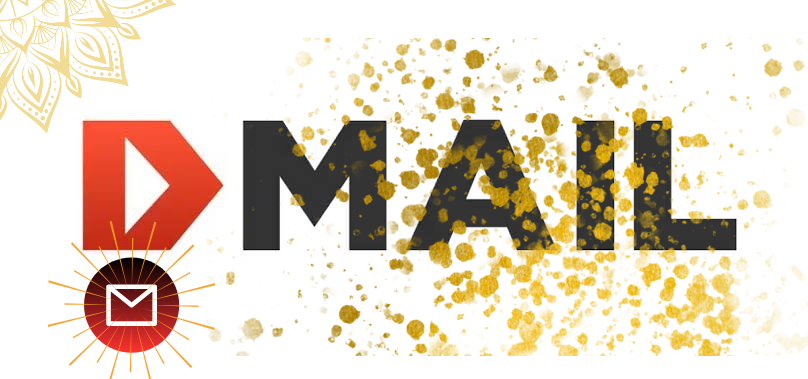Why Owning Your Email Identity Matters in Web3 — and How Dmail Makes It Possible
 Tommy williams
Tommy williams
In the evolving landscape of Web3, data sovereignty and digital ownership are more than buzzwords — they're becoming non-negotiable principles. From wallets to NFTs to decentralized applications, the shift away from centralized control is rapidly redefining how we interact online.
But there's one fundamental tool that hasn't kept up: email.
Even as we embrace blockchain-based tools, most of us still rely on Web2 email providers like Gmail, Outlook, and Yahoo — platforms that collect our data, monetize our activity, and store our messages in centralized servers vulnerable to censorship, surveillance, and hacks.
That’s where Dmail Network steps in.
The Problem with Traditional Email
Email is one of the oldest yet most persistent forms of online communication. But while it's deeply integrated into our daily routines, it's also deeply flawed — especially in the context of privacy, control, and true digital ownership.
You don’t own your email identity.
Your "@gmail.com" or "@outlook.com" address ultimately belongs to the provider. They can shut it down, limit its use, or monitor your activities without your consent.It’s centralized and prone to breaches.
Centralized servers are frequent targets for cyberattacks. A single breach can expose millions of inboxes.Lack of integration with Web3 ecosystems.
Traditional email systems are incompatible with dApps, on-chain verification, and wallet-based communications.
If we're building the internet of the future, why are we still using tools from the past?
Enter Dmail: Your Web3 Communication Identity
Dmail Network is a decentralized communication protocol designed specifically for the Web3 era. But more importantly, it empowers users to own their email identity through the use of NFT domains and wallet integration.
Here’s how Dmail changes the game:
1. Email Identity as an NFT
At the heart of Dmail’s system is the DID (Decentralized Identifier) tied to a Dmail NFT domain. This isn’t just a catchy Web3 gimmick — it fundamentally changes how you control your inbox.
When you own a Dmail domain (like yourname.dmail), you're not just choosing a username. You're minting a unique digital asset on the blockchain that represents your communication identity. It’s non-custodial, meaning no central authority can revoke or censor it.
And because it's an NFT, you can:
Transfer it
Trade it
Secure it with your wallet
Your email address becomes a self-owned digital passport.
2. Wallet-Based Communication
Dmail supports wallet-to-wallet communication — allowing users to send and receive messages directly to wallet addresses, with optional encryption. This enables seamless interaction between protocols, DAOs, projects, and individuals in a decentralized environment.
You can send a message to 0x123...abcd or a .dmail domain — no traditional email address needed.
3. On-Chain Privacy & Encryption
Dmail doesn't just promise privacy — it builds it into the architecture.
Messages are encrypted and stored using decentralized file storage (like IPFS or Filecoin). Only the sender and receiver can decrypt the contents using their private keys. This eliminates the surveillance-prone practices of traditional email providers and gives you full control over your data.
4. Cross-Chain Compatibility
Dmail isn’t limited to one chain. It’s a multichain platform that supports Ethereum, BNB Chain, Polygon, Arbitrum, and more — enabling users to use their wallet from any major chain to manage communication.
This flexibility makes it ideal for the increasingly modular and multichain world we’re building.
Why Owning Your Communication Layer Matters
Web3 is all about self-custody, ownership, and interoperability.
We own our money (crypto).
We own our digital art (NFTs).
We own our usernames and identities on ENS or Lens.
So why shouldn't we also own the inbox we use to interact in this space?
Dmail isn't just building another messaging app. It's building the missing communication layer of Web3 — one that respects your sovereignty, integrates with your wallet, and adapts to your multichain life.
Final Thoughts
In a world increasingly shaped by decentralization, it’s time for communication to catch up. The future of email isn’t centralized inboxes and ad-driven platforms. It’s self-owned digital identities, wallet-native messaging, and encrypted, censorship-resistant communication.
Ready to take control of your Web3 communication identity?
Start your journey with Dmail today and mint your own decentralized inbox at https://dmail.ai
Subscribe to my newsletter
Read articles from Tommy williams directly inside your inbox. Subscribe to the newsletter, and don't miss out.
Written by

Tommy williams
Tommy williams
Web3 Enthusiast Ambassador Web Developer